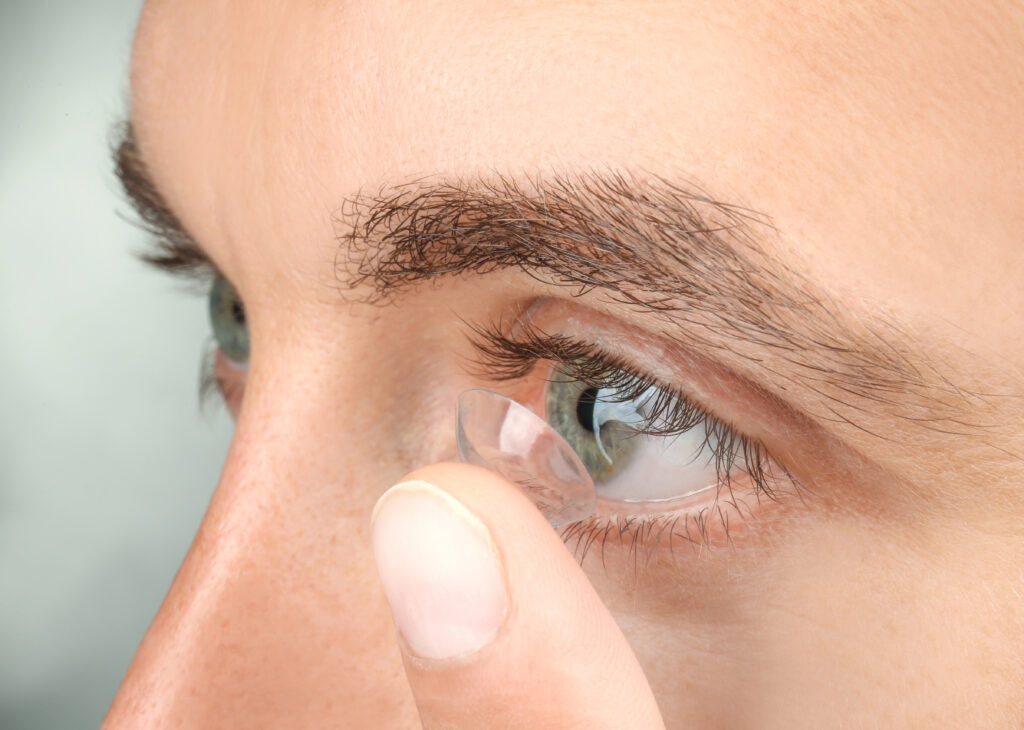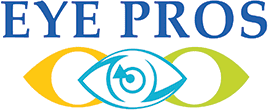How Often Should You Renew Your Contact Lens Prescription?

If you wear contact lenses, keeping your prescription up to date is crucial for maintaining both clear vision and eye health. Many people overlook the importance of renewing their contact lens prescription regularly, but doing so ensures your lenses fit properly, correct your vision accurately, and don’t cause unnecessary strain or discomfort. A simple visit to your eye doctor for a contact lens prescription test can make all the difference in protecting your long-term eye health. In this article, we’ll explore how often you should renew your prescription, why regular eye exams are essential, and the potential risks of using an outdated prescription. Staying informed and proactive can help you avoid vision problems and keep your eyes healthy while wearing contact lenses. How Often Should You Renew Your Contact Lens Prescription? It’s recommended to renew your contact lens prescription every 1 to 2 years, depending on your individual needs and the guidelines set by your eye doctor. The expiration date on your prescription ensures that you’re using lenses that fit properly and reflect any changes in your vision. Over time, your eyes can change shape or develop conditions that affect how your lenses fit and perform, which is why it’s important to keep your prescription updated. Here’s why renewing your contact lens prescription regularly is essential: Vision Changes Your vision can change subtly over time, even if you don’t notice it right away. An outdated prescription can cause eye strain, blurred vision, or headaches. Eye Health Monitoring Regular eye exams are not just for checking your vision—they allow your eye doctor to monitor the overall health of your eyes, including checking for conditions like dry eyes or corneal damage, which can be worsened by contact lens use. Prescription Expiration By law, contact lens prescriptions typically expire after one year, sometimes two, depending on where you live. This is to ensure that you’re consistently using lenses that are safe and effective for your current eye condition. Renewing your contact lens prescription on time ensures that your lenses are comfortable and effective, while helping you avoid unnecessary risks. Scheduling regular visits to your eye doctor for a contact lens prescription test is the best way to stay on top of your eye care needs. Why You Need Regular Eye Exams for Contact Lenses Regular eye exams are essential for contact lens wearers to ensure not only that your prescription is correct, but also that your eyes remain healthy over time. Unlike glasses, contact lenses sit directly on the surface of your eye, which makes it even more important to have your eyes checked regularly by an eye doctor. Here’s why frequent eye exams are critical for contact lens wearers: Checking for Vision Changes Your vision can change gradually, even if you don’t notice it right away. Regular eye exams ensure that your contact lens prescription is up to date and that your lenses provide optimal correction for your current vision needs. Contact Lens Fit During a contact lens prescription test, your eye doctor will ensure that your lenses fit properly. A poor fit can cause discomfort, blurred vision, and even lead to conditions like corneal abrasions or infections. Monitoring Eye Health Long-term use of contact lenses can increase the risk of dry eyes, infections, and other eye conditions. Routine exams allow your eye doctor to monitor your eye health and address any issues before they worsen. Detecting Early Signs of Problems Eye exams can catch early signs of problems that may not show symptoms yet, such as corneal damage or early-stage eye diseases. This is particularly important for contact lens wearers, as lenses can sometimes mask or worsen these conditions. Regular eye exams not only keep your prescription accurate but also ensure that your eyes remain healthy and comfortable while wearing contact lenses. A visit to your eye doctor every year or two can prevent complications and keep your vision sharp. Signs You Need to Renew Your Contact Lens Prescription It’s important to recognize when your contact lens prescription may need an update. Wearing an outdated prescription can lead to discomfort and vision issues that affect your daily life. Here are some common signs that it’s time to renew your prescription and see your eye doctor: Blurred Vision If your vision starts to get blurry while wearing your contact lenses, even after cleaning them, it may be a sign that your prescription is no longer accurate. This could lead to eye strain and headaches if not addressed. Eye Discomfort Feeling discomfort, irritation, or dryness in your eyes while wearing contact lenses can indicate that your lenses no longer fit properly or that your eye shape has changed. An updated prescription can help fix this issue. Frequent Dry Eyes If you experience dry eyes more often, even when using lubricating drops, it may be time to have your prescription reviewed. Your eye doctor can assess whether your current lenses are contributing to this condition. Headaches and Eye Strain If you’re squinting or feeling eye strain, particularly when reading or working on a computer, your current lenses may not be providing the correct vision correction. This is a sign that you need a new contact lens prescription. Changes in Lens Fit If your contact lenses feel uncomfortable or seem to shift around in your eyes, it could be a sign that they no longer fit as they should. This is another reason to schedule an appointment with your eye doctor to renew your prescription. If you notice any of these symptoms, it’s time to schedule an eye exam to ensure your prescription is accurate. A contact lens prescription test can make sure you’re wearing lenses that provide both comfort and clarity. Risk of Wearing Expired or Outdated Contact Lenses Wearing contact lenses with an expired or outdated prescription can pose significant risks to your eye health. While it may seem convenient to continue using your current lenses, ignoring the need for renewal can lead to discomfort and even long-term damage. Here are some
